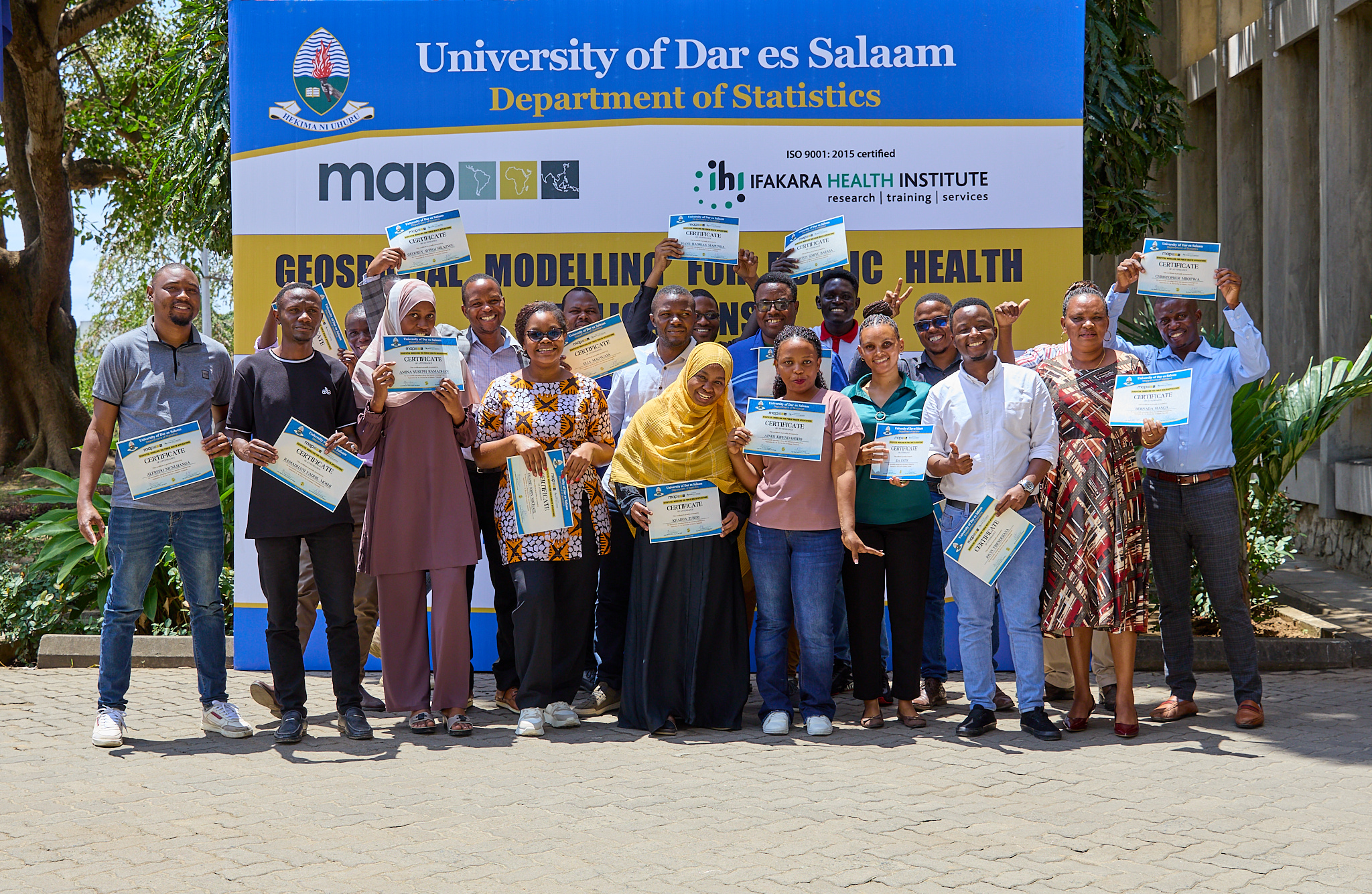
TRAINING: Ifakara, UDSM partner to strengthen geospatial modelling capacity for public health applications

The University of Dar es Salaam (UDSM), through its Department of Statistics, is hosting a three-day training on Geospatial Modelling for Public Health Applications from September 16–18, 2025, at the Old Council Chamber, Administration Block in Dar es Salaam.
The training is organized through a collaborative effort between the Ifakara Health Institute’s Malaria Atlas Project EA Node staff and the UDSM. The program is designed to strengthen both technical skills and institutional capacity for evidence-based decision-making in health.
The workshop brings together researchers, practitioners, and policymakers from the organising institutes, Vector Atlas, and the Zanzibar Malaria Elimination Program (ZAMEP) to explore the use of geostatistical models in analyzing spatial health data. With a special focus on malaria research, participants are gaining hands-on experience using the R programming language, applying practical examples to real-world public health challenges.
The event was officially opened by Prof. Christine Noe Pallangyo, Principal of the College of Social Sciences. Remarks were delivered by Dr. Amina Msengwa, Statistician General of the National Bureau of Statistics (Tanzania); Dr. Shadrack Kibona, Head of the Department of Statistics; Dr. Susan Rumisha, Principal Research Scientist and Lead of the MAP Dar Node; and Dr. Punam Amratia, Technical Lead at the MAP Dar Node.
In a special lecture, Dr. Msengwa introduced participants to geostatistics and shared perspectives on the role of statistics, spatial data, and geospatial modelling in supporting public health decision-making and policy, who underscored the importance of knowledge and policy translation in advancing national health goals.
Facilitation of the sessions are being led by experts from the MAP Dar Node at Ifakara, including in collaboration with faculty from UDSM.
Beyond training, the event also serves as a networking platform for researchers from different institutions, encouraging knowledge exchange and fostering collaborative approaches to tackling pressing public health challenges through spatial data science.
